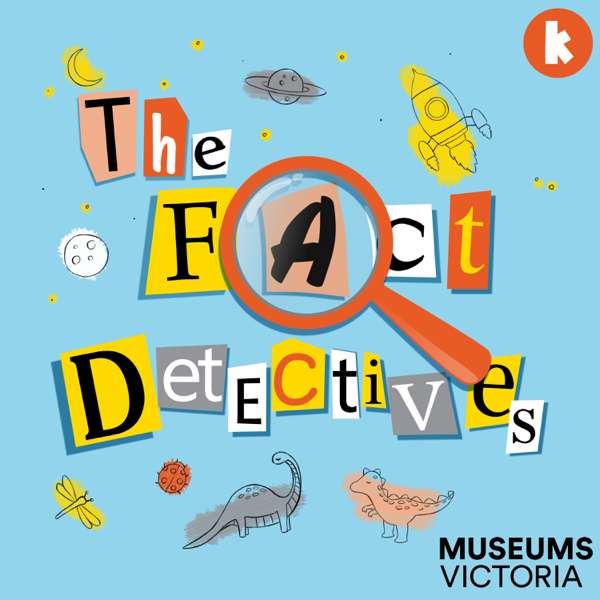Listen here or READ the post below.

One of the biggest roles that we have as a parent is being aware of our child’s strengths and their weaknesses, then trying minimize the negative effects of the weaknesses and bringing out and channel their strengths.
One of the weaknesses that our strong-willed kids has is being IMPULSIVE. Strong-willed kids want what they want, right when they want it.
Today we get to talk to Clinical Mental Health Counselor, Mike Fitch to learn how to help our kids THINK before they ACT.
Mike Fitch, CMHC
I deal with impulsive kids both in my clinical work and at home. It’s good to have the personal experience so I can empathize with a lot of the parents that I work with. Just like all of you and the parents I work with, there are times I really want to pull my own hair out and times where I question my own parenting.
If I haven’t screwed my kids up so far, there’s a good chance you won’t either.
Expect the process to take time
Each of us have characteristics or features that we were born with that are still a challenge for us in adulthood. So is it appropriate to expect our child to all of a sudden be perfect or is it appropriate to expect that this could take a lifetime for them to get weaknesses, to become strengths?
Changing your nature can take a lifetime. Some kids will catch onto things quicker than others.
There are two categories of kids that are impulsive
Category #1 The “Impulsive Brain”
There are kids with attention deficit disorder that are naturally impulsive. These are the kids that have lower dopamine levels and so the brain’s always seeking for stimulus to raise their dopamine. Their brains are literally going so fast that it’s really challenging for them to THINK before they ACT.
From my experience, and I know this is going to be a stereotype, these are fairly kindhearted kids. They’re not doing the thing stop, think, act. They just acting on, “Hey, that looks neat. I think that would raise my dopamine levels.”
If you feel like you have a child that fits into this category, I would recommend checking out the book The Gift of ADHD.
Category #2 The “Entitled and Willful Child”
These kids tend to be impulsive because they feel entitled to have whatever they want or they are just so willful about what they want. They also struggle to connect the dots between their actions and consequences. The have a hard time comprehending consequential thinking.
These kids also want to do things their way, to feel in control of their lives. EVERY child goes through a stage of development where they are very egocentric. Meaning, that they think about themselves and want things to revolve around them. Strong-willed kids experience this phase with more intensity than other kids and will take more time to see outside of themselves.
Kids that fall into Category One would see a cookie and grab it before thinking about anything. Whereas, a child from Category Two would see a cookie and think “I want that cookie. I deserve to have the cookie more than anybody else and therefore that cookie as mine.”
Neither of these categories of kids are bad
I think these each of these children that are born this way. They’re not trying to be bad. They just have a different type of brain. It’s also important to remember that throughout the history of evolution, all these types of brains serve a purpose. The kids that are more willful, are often the ones who become the leaders and the trendsetters. So there’s a purpose to your child’s personality. It doesn’t make parenting them easy, but can help us stay positive when things are tough.
How to help kids think BEFORE they act
It’s important to break this down by category because kids in Category One need to be handled VERY differently than kids in Category Two.
Category One
To help these kids think before they act, you are going to use something called “conditioning”. Conditioning is where you practice the desired behavior over and over again until it becomes habitual for the child.
Some of the parents are going to cringe when I say this, but roleplaying is the best way to condition a Category One child to think before they act.
Identify some of the traps that your child is falling into and then start role playing those so the child has an opportunity to act out what he or she should be doing instead.
For example:
Let’s say your child is really impulsive with grabbing cookies that aren’t theirs (or any other treat).
You’re going to have a plate of cookies out on the counter then you’re going to role-play with your child.
First ask, “Whose cookies are those? What could they possibly be for?”
Then have your child state all the possibilities. “My mom could be making them for the neighbors. It could be for lunches. It could be a treat for us.”
Next ask, “What do you need to do to find that out?”
The child should say, “I need to ask my mom first.”
Then actually have the child ask the parent, “I see that you have these cookies here. What are they for and can I have one?”
Keep practicing and practicing. With time and patience, you will see your impulsive child make progress.
Remember to do this without getting upset with the child. I feel bad for ADHD kids because they’re constantly getting in trouble at school, at friend’s house, at home with siblings, and so often their self-esteem is fairly low. It’s important to remember that their brains are wired differently than ours.
Category Two
This child usually lacks empathy, thinking about how another person might feel if they eat the last cookie. So with this child you’re going to do a lot of empathy training. It’s a different type of consequential thinking than the ADHD child. It’s more, how’s this going to make everybody else feel? Try to train them to see what the other perspective is.
You can check out this whole episode on empathy here. But here are the main ideas:
- Start talking to your child frequently about how they feel in certain situations. Your child is naturally egocentric, so it’s easier for them to think about how they feel than how others feel.
- Let your child explain how they would feel in that situation.
- Now connect the dots. Explain that others feel that same way when that same thing happens to them.
- Keep doing this over and over again, being patient with the process. You are retraining their brain to think of others during a phase of life when their brain is telling them to only think about themselves.
For example:
Let’s use the plate of cookie example again.
How would a person, how would everybody else, Phil, if you took all the cookies on the plate,
First, ask your child how they would feel if they saw a plate of cookies, they really wanted a cookie, but someone else ate ALL of the cookies.
Let them explain how they would feel. Feel free to ask “What else would you feel?” repeatedly until they’ve really shared all they would feel.
Now connect the dots. Tell them that others feel sad too when they eat all the cookies and don’t leave any for anyone else.
Use this kind of empathy training in lots of areas of their life.
Here’s some other examples:
- If your child’s always getting out the door: “How would you feel if you were ready the go somewhere and then someone stopped you from being on time?”
- If your child takes their siblings things without asking: “How would you feel if your brother went in your room and took whatever he wanted out of there to keep?”
- If your child has a hard time taking turns: “How would you feel if no one ever let you go first? Or choose what you wanted to play when you were together?”
Remember, there is hope
Both the Category One and the Category Two are very fixable issues, but they both take time. As with many issues in parenting, there’s no such thing as a quick fix. I find that a lot of parents want a quick fix and I feel they would be happier if they accepted that parenting is a marathon, not a sprint. Training kids to become great adults takes YEARS.
But here’s a personal story to help you feel optimistic in the meantime.
I have two clients who are brothers. Both had ADHD and one was a very, VERY strong-willed child on top of the ADHD. I taught their mom what I’ve shared above and now that she’s been working with them for years, they are doing MUCH better. They are thinking before they act, they ask for permission, they consider other’s feelings, they are just so much further along than they were before.
They are a great example of what happens with some effort and consistency.
Also remember, that you’re not the only one who will be teaching your kids. If you allow your kids to experience the uncomfortable consequences of mistakes in this area, then those natural consequences will teach your kids to think before they act.
A lot of this is honestly being able to get through their childhood, these difficult moments and allowing the child to self-correct.
Happy Parenting!


 Our TOPPODCAST Picks
Our TOPPODCAST Picks  Stay Connected
Stay Connected



















